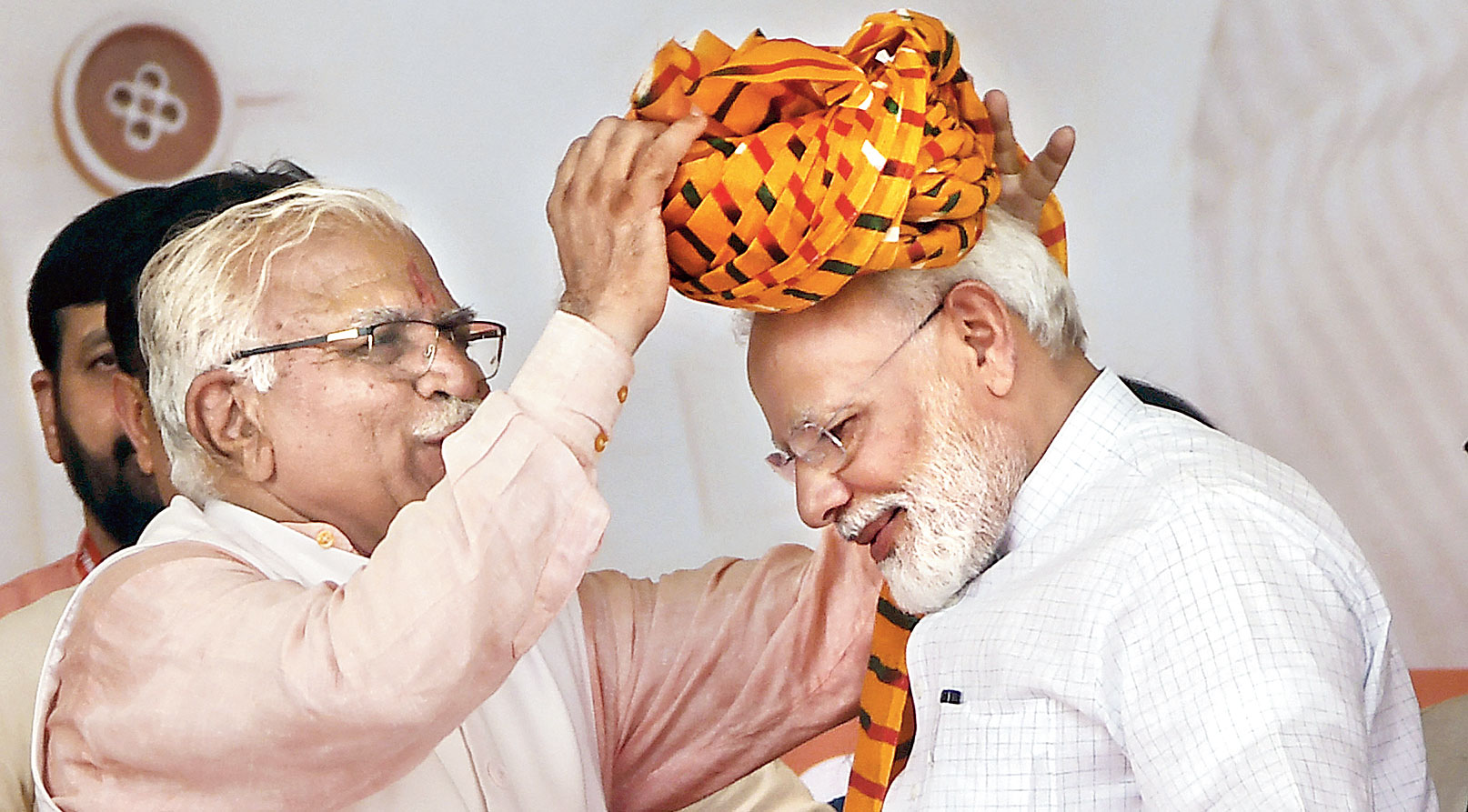The Narendra Modi government on Sunday brushed aside concerns of deepening economic slowdown, saying it was only a “little diversion”, as it sought to counter uncomfortable questions at a media interaction it had lined up to celebrate a hundred days in office.
Information and broadcasting minister Prakash Javadekar said it was a “temporary phase”, responding to repeated queries about the economy after he had started off by referring to the “landmark and historic” decision on Jammu and Kashmir.
“Sometimes slowdown is a cyclical process but the fundamentals of the Indian economy are so strong (that) they are not being disturbed. Our domestic economy is on a strong footing…. A patch, a sketchy patch, will not hurt India’s progress,” Javadekar told the media conference.
The meet was to mark 100 days of the Modi 2.0 government and its “unprecedented” achievements in the short span of time since he assumed charge as Prime Minister again on May 30.
But questions on the economic slowdown, reflected in India’s growth that slipped to a six-year low of 5 per cent in the April-June quarter; job losses across sectors, and how the government planned to turn the situation around dominated the meet meant to celebrate “glorious governance”.
Javadekar said the slowdown was cyclical and claimed it was only a “little diversion” and the country would be back on the path of a robust growth of 7-8 per cent.
At one point, faced with the frequency of questions related to the economy, he said he couldn’t be expected to repeat the same answer every time.
“There are sometimes issues of sentiment…. The world over there is a slowdown and it’s impacting people’s sentiments…. But we shouldn’t be worried too much…. This is a temporary phase and not a direction of a real slowdown,” Javadekar said in reply to a question.
Asked how many jobs the government had created in 100 days, how many more would be generated over the next year and about reports of job losses in the private sector, Javadekar said problems related to jobs would always be there in a “dynamic economy” like India.
“(With) jobs in a functional economy, there will always be specific problems,” he said.
Javadekar also faced questions on the new Motor Vehicles Act that has made penalties more stringent for violators. The minister said the huge increase in fines would make people obey traffic rules and claimed the stiffer punishment was for the larger public good.
The media address, on behalf of the Bureau of Outreach & Communication under the I&B ministry, had earlier got off with a presentation on the government’s decision to scrap Jammu and Kashmir’s special status and split the state into two Union Territories.
Javadekar, who began with a PowerPoint Presentation, referred to the “path-breaking decision” of “bringing J&K and Ladakh to (the) mainstream”. He claimed that the removal of special provisions under Articles 370 and 35A and the creation of the two Union Territories had led to Jammu and Kashmir’s integration with the rest of the country.
The minister celebrated Modi’s diplomacy, saying “the world stood with us (on Kashmir)”.
Javadekar called the government’s Kashmir decision “landmark and historic”. Asked about the continuing lockdown in the Valley, he said prohibitory orders were in place in only 14 police stations in Kashmir.
It is an “evolving story”, he said, adding that all the development schemes of the central government would be implemented.
Moon mission Chandrayaan-2 also found prominent mention as a “new era of discovery”, with Javadekar particularly referring to Modi’s embrace to console Isro chief K. Sivan after the space organisation lost contact with its moon lander Vikram.
“The way the Prime Minister extended his shoulders to the Isro chief, it showed sensitivity and boosted the morale of the scientists,” Javadekar said.











